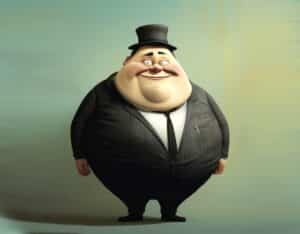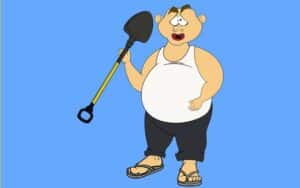The Importance of Hydration Recognized

We have mentioned that businesses are interested in learning how to discourage workers from “doing things on company time that will eventually cost the company many dollars.” One of those factors is the consumption of sugar-sweetened beverages, which have been shown to cause obesity. The particular methodology of this threat is that employees who become obese tend to bend the “bottom line” expensively.
Most people probably do not have a clue about all the history behind the availability (or not) of water in either public locales or in places of business. Over the years, many laws have been argued, passed, contested, and rewritten, over the issue of water in the workplace. Considering the enormous number of different kinds of workplaces that exist, keeping up with the whole field must be an exhausting responsibility. It is good to know that special attention has been paid to the importance of water in preventing obesity.
In the USA, the Occupational Safety and Health Administration requires that potable water be available to workers, and that they should be encouraged to drink it, and cannot be asked to pay for it. The rule is not confined only to readily accessible water for the quenching of thirst, but encompasses every use for which potable (technically, safe to drink) water is utilized:
[…] for drinking, washing of the person, cooking, washing of foods, washing of cooking or eating utensils, washing of food preparation or processing premises, and personal service rooms.
Furthermore, “Each industry contains specific requirements tailored to the conditions of these fields,” including guidance on the provision of “reasonable opportunities” to hydrate. Of course, these considerations may be extended not just out of warm regard, but because companies have caught on to the fact that obesity costs them a considerable amount of money.
Perhaps the availability of good water might help to wean some workers off their habitual high-cal drink habits. Never mind that coffee with three spoons of sugar, and forget about sodas and juices, especially those with added sweetener.
In 2014, the Centers for Disease Control and Prevention produced the multiply-authored and lengthily titled “Impact of Individual and Worksite Environmental Factors on Water and Sugar-Sweetened Beverage Consumption Among Overweight Employees”. It was described as “the first extensive evaluation of the workplace environment and its influence on water and SSB consumption.”
After taking into consideration many reports, the researchers concluded that workplace factors definitely influence the behavior of overweight employees. They found that reduced access to vending machines could steer habits into healthier channels. Consultants also looked further into the roles played by water coolers, vending machines, and break frequency. Here is the bottom line from that study:
Future intervention trials are warranted to determine whether reducing SSB consumption and increasing water consumption could be an effective dietary strategy for worksite-based weight management interventions and whether individual and environmental intervention features mediate or moderate intervention effectiveness.
A few years ago, similar research scrutinized both “intensive-labor and static-type workplaces” and concluded that promoting the water consumption habit “may benefit employees,” which is pretty weak sauce, considering how the phraseology implies “… or it may not.” Well then, could the provision of both water and nudging reminders induce employees to drink lots of water in order to “diminish their tendency to gain weight”?
At the same time, this research project was looking for more than just how to encourage increased water consumption. Managerial and executive eyes were on a bigger prize, and WHPPs (Workplace Health Promotion Programs) were created to serve the need, and a sentence in the Conclusion affirmed the hope.
“If reminders about water intake can be sent to employees in a timely manner, and if they can be informed with the health benefits brought by drinking water regularly, combined with unforced health education, it may be possible to obtain other additional benefits in addition to enhancing employees’ water intake.”
Of course, businesses are not only concerned about employees’ health, and it would be silly to believe they are. But to discover a factor that can improve the lives of workers while at the same time reducing employer costs, well, that is something to write home about for sure.
Your responses and feedback are welcome!
Source: “Summary: OSHA Water Requirements,” ZTers.com, 09/09/24
Source: “Effectiveness of a Water Intake Program at the Workplace in Physical and Mental Health Outcomes,” NIH.gov, 2022
Image by Picsues/Pixabay










 FAQs and Media Requests:
FAQs and Media Requests: 











